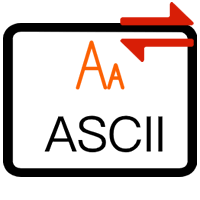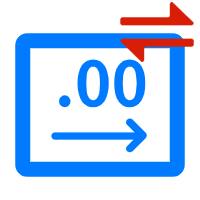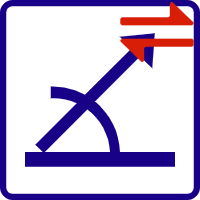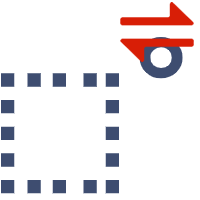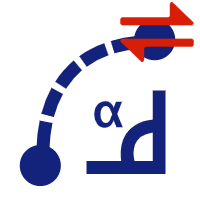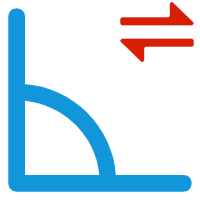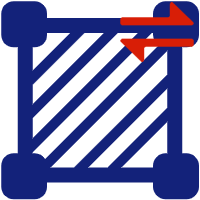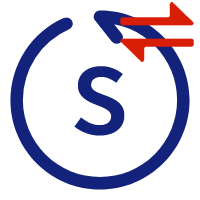
Hours to Seconds Converter
Convert hours to seconds instantly with our time converter. Perfect for duration calculations, time tracking, work hours calculation, project planning, and precise time measurements. Get accurate results.
Relationship Between Hours and Seconds
The conversion between hours and seconds is based on the fundamental relationship where 1 hour equals exactly 3,600 seconds.
1 h = 3,600 s
This is because 1 hour = 60 minutes, and 1 minute = 60 seconds, so 60 × 60 = 3,600 seconds.
To convert hours to seconds, we multiply the value in hours by 3,600.
For example, 1 hour equals 3,600 seconds, 2 hours equal 7,200 seconds, and 0.5 hours equal 1,800 seconds.
Hour (h)
What is an Hour (h)?
An hour (symbol: h or hr) is a unit of time equal to 60 minutes or 3,600 seconds. It is one of the most fundamental units in our modern timekeeping system. There are 24 hours in a day, and the hour serves as the primary unit for scheduling, measuring work time, and organizing daily activities worldwide.
History and Origin of the Hour
The division of the day into 24 hours has ancient origins. The ancient Egyptians divided daytime and nighttime into 12 hours each, though these 'hours' varied in length with the seasons. The modern fixed-length hour of 60 minutes was developed through the combination of Egyptian, Babylonian, and Greek timekeeping systems. The equal-hour system became standard with the development of mechanical clocks in medieval Europe.
Modern Applications of Hours
- Work and Labor: Shift lengths, hourly wages, working hours per week
- Travel: Flight durations, driving distances measured in hours
- Scheduling: Daily routines, business hours, operating times
- Education: Class periods, study sessions, credit hours
- Time Zones: World divided into hourly time zones (UTC+/- hours)
- Healthcare: Medication schedules (every 4 hours, every 6 hours)
- Entertainment: Movie runtimes, gaming sessions, event durations
- Billing: Hourly rates for services, parking fees, rental charges
Hour in Modern Society
The hour is central to modern life organization:
24-Hour Day: Standard division of each day
12-Hour Format: AM/PM system (1-12 hours)
24-Hour Format: Military time (0-23 hours)
Global Standard: Universal time measurement
Work Standards: 8-hour workday, 40-hour workweek
The hour provides a practical framework for structuring human activities and coordinating across societies and time zones.
Second (s)
What is a Second (s)?
A second (symbol: s) is the base unit of time in the International System of Units (SI). It is defined as the duration of 9,192,631,770 periods of the radiation corresponding to the transition between two hyperfine levels of the ground state of the cesium-133 atom. The second is the fundamental unit upon which all other time measurements are based.
History and Origin of the Second
The second was originally defined as 1/86,400 of a mean solar day. However, as timekeeping became more precise, this definition proved inadequate because Earth's rotation is not perfectly uniform. In 1967, the second was redefined based on atomic time using cesium atoms, providing unprecedented accuracy and consistency in time measurement worldwide.
Modern Applications of Seconds
- Computing: CPU clock speeds, network latency, program execution time
- Sports: Race timing, athletic records, game clocks
- Science: Experimental measurements, physics calculations, chemical reactions
- Communications: Data transmission rates, signal processing
- Healthcare: Heart rate (beats per second), pulse oximetry
- Media: Frame rates (frames per second), audio sampling
- Navigation: GPS timing, satellite synchronization
- Finance: High-frequency trading, transaction timestamps
The Second in Precise Timekeeping
The second is essential for modern technology and science:
Atomic Clocks: Most accurate time measurement devices
GPS Systems: Rely on nanosecond precision
International Time: Coordinated Universal Time (UTC) based on atomic seconds
Leap Seconds: Occasionally added to keep atomic time synchronized with Earth's rotation
The precision of the second enables technologies like GPS navigation, telecommunications networks, and scientific experiments that require exact timing.
Hours to Seconds Conversion Table
The conversion of hours to seconds for certain values are provided below:
- Hours [h]
- Seconds [s]
- 0.25 h
- 900 s
- 0.5 h
- 1800 s
- 0.75 h
- 2700 s
- 1 h
- 3600 s
- 1.5 h
- 5400 s
- 2 h
- 7200 s
- 3 h
- 10800 s
- 4 h
- 14400 s
- 5 h
- 18000 s
- 6 h
- 21600 s
- 8 h
- 28800 s
- 10 h
- 36000 s
- 12 h
- 43200 s
- 16 h
- 57600 s
- 18 h
- 64800 s
- 20 h
- 72000 s
- 24 h
- 86400 s
- 48 h
- 172800 s
- 72 h
- 259200 s
- 168 h
- 604800 s


